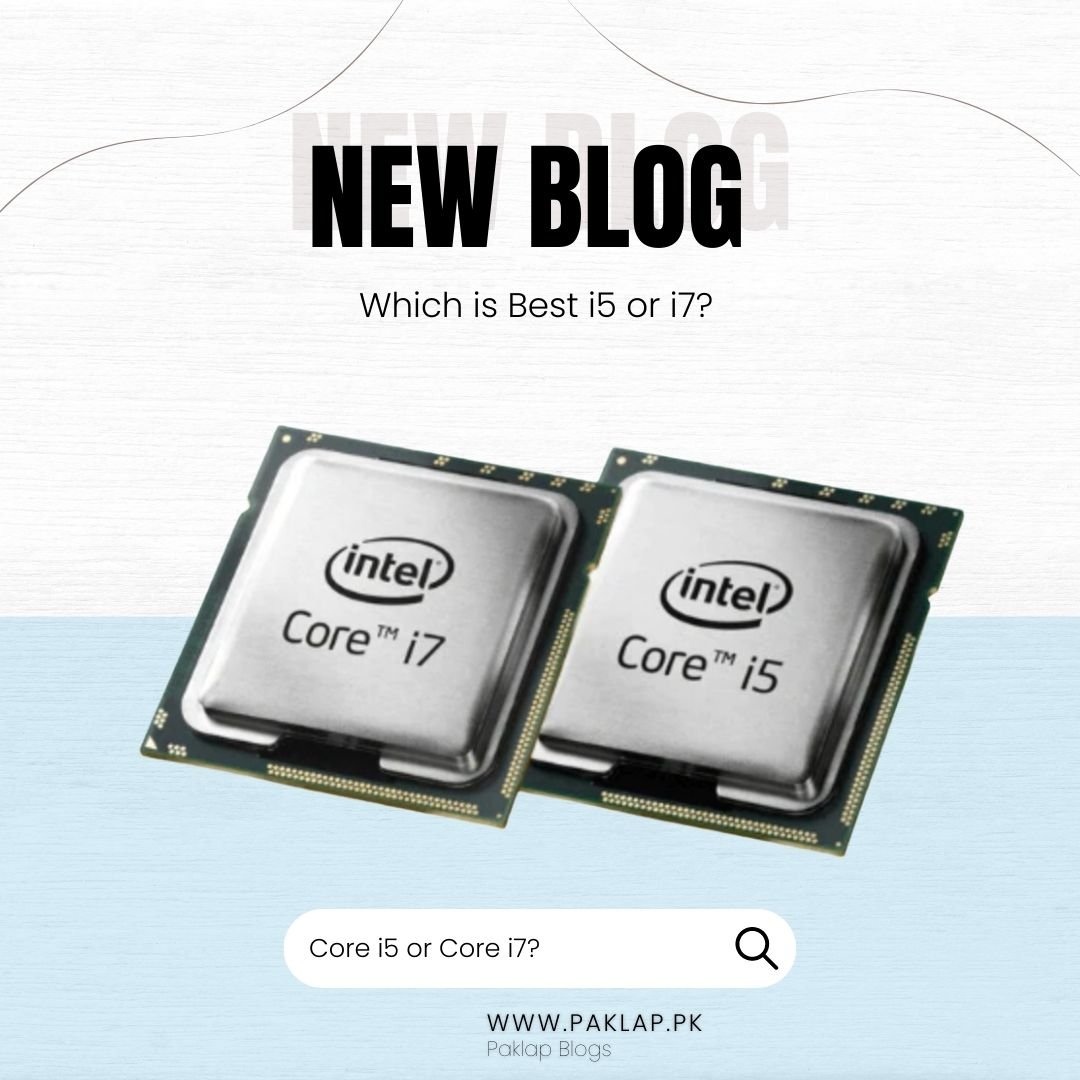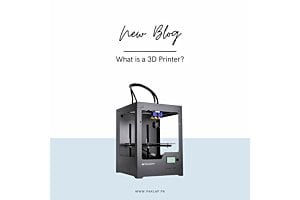Which is Best i5 or i7?

When shopping for a laptop, the decision between a Core i5 Laptop and an i7 processor is frequently made. While the Core i7 Laptop is known to provide better performance, it comes with a higher price tag. The question then arises - is it truly worth the extra investment? Furthermore, one must consider additional factors such as battery life and fan noise. Although these processors have become more alike than in past years, selecting the appropriate one can significantly impact your laptop's performance. This blog aims to address these concerns and provide clarity on the matter. Without delay, let us begin our discussion.
What distinguishes Intel Core i5 from i7?
One notable difference is that Intel Core i5 notebooks are more affordable compared to those equipped with an i7. The Intel i5 is a versatile processor, which delivers steady performance for activities such as web surfing, gaming, and carrying out basic tasks. In contrast, the higher CPU offers increased processing capability making it preferable for high-end gaming, content production, editing, and professional applications. Finding the perfect Intel processor for your needs does not stop at the number of cores. It is important to take into account other specs like threading to ensure you are making the right choice. These factors play a big role in how your mainframe handles different tasks and utilizes resources.
While the differences between the two do not seem significant, they can have a major impact on your laptop's performance depending on what you are using it for. If you are editing videos or running many applications at once, an insufficient mainframe can slow down your system. You do not need a super powerful mainframe for basic day-to-day use, and it will likely cost you more than necessary.
Key Differences | i5 | i7 |
Bus Type | Direct Media Interface (DMI) | Quick Path Interconnect (QPI) |
Processor Architectures | Dual/Quad core | Dual/Quad/Hexa core |
Hyperthreading | Not possible | Possible |
Clock Speed | 1.2-3.6 GHz | 1.3-3.5 GHz |
Cache Size | 3MB-6MB | 4MB-8MB |
Battery life | 14 hours 45 minutes approx. | 10 hours 49 minutes approx. |
Embedded option | Yes | No |
What makes the Intel Core i5 worth considering?
In general, i5 processors cost less than i7 processors. Between the more affordable Core i3 chips and the top-of-the-line i7 and i9 models, these processors are referred to as Intel's mainstream processor line. Yet it is important to remember that each mainframe family includes a variety of internal parts and microarchitectures that can affect how well an i5 or i7 model performs. So, before making a purchase, it would be wise to carefully review the specifications.
Intel i5 provides exceptional performance for desktop and laptop computers. It might be worthwhile to consider getting a Core i5 mainframe if you use your home computer or laptop primarily for online browsing and light application tasks.
Why should you consider the Intel Core i7?
In comparison to i5 CPUs, Intel's Core i7 processors are renowned for their greater speed and enhanced capabilities. The most recent chips are equipped with up to six cores and 12 threads, enabling them to perform complex multitasking functions more efficiently.
Core i7 mainframes are widely regarded as the best option for handling scientific work, resource-intensive applications like Adobe's Creative Suite, advanced gaming, and multimedia usage. It might be a smart purchase if your current desktop or laptop is having trouble keeping up with these applications’ demands.
Additional Processor Specs
CPUs come equipped with some essential features to help them manage their tasks effectively and efficiently. So, when you are on the hunt for a CPU, make sure you take these features into account too.
1. Clock Speed
Clock speed is basically how fast your CPU can carry out operations. It is measured in cycles, which represent the CPU's ability to perform calculations. The more cycles your processor can handle in a second, the greater its clock speed will be. A CPU with a higher clock speed will typically run faster, but it is not the only thing to consider. Every CPU handles tasks in its way. Sometimes, even if a CPU has a slower clock speed, it can still be more efficient by spreading out tasks over a greater number of cycles. So, the i5 might have a higher base clock speed, but the i7 performs faster because it is more efficient with the workload.
2. Hyperthreading
Hyperthreading is an exclusive technology developed by Intel for implementing multithreading, which is essentially the division of a CPU's resources into several instruction threads. This technology enables a computer to virtually possess twice as many cores thereby efficiently processing multiple tasks or instruction threads at the same time. Multithreading and hyperthreading can significantly enhance device performance, particularly for tasks involving extensive multitasking such as multimedia editing or video rendering.
3. Cache
The cache, or internal memory of the computer chip, plays a key role in improving the processor's capacity to carry out repetitive operations and quickly access commonly used data. Multitasking performance is particularly strong on CPUs with larger caches. Although CPU cache sizes typically increase from generation to generation, it is not a key deciding factor to take into account when evaluating a CPU.
4. Integrated Graphics
A component of the CPU that functions similarly to a graphics card is called integrated graphics, also referred to as Intel's HD/UHD graphics. Even though integrated graphics may not be as powerful as a dedicated graphics card (GPU), they are a great alternative for devices with limited space or that do not need a GPU. Due to its power-saving feature, integrating graphics processing functionality into the CPU is a workable solution for low-level graphical tasks, but it might not be enough for gaming. Your device should have an updated GPU to ensure smooth gaming.
Core i5 or Core i7?
The Core i5 processor is an optimal choice for both professionals who require a reliable computing system for their work tasks and home users who seek a dependable device to engage in regular gaming activities. However, a system with an i7 Processor would be the best option for anyone looking for a device with server-like features and solid processing capabilities. Removing unused files from your computer may help it run faster if you notice that it is slowing down. If this does not work, it is possible that your hardware is outdated. To adapt to the constantly evolving technological demands, upgrading your mainframe can do wonders. Getting a more powerful one not only helps with running current applications smoothly but also ensures your computer is equipped to handle future demands.





